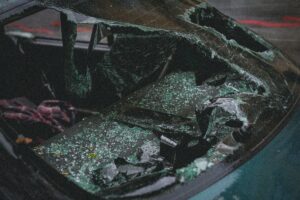California Penal Code 191.5, subsections (a) and (b) define the crime of vehicular manslaughter. These two subsections spell out differing levels of negligence, which has an impact on the potential criminal penalties for a conviction under this statute.

vehicular manslaughter while intoxicated – san pedro criminal defense attorney
If the defendant was driving in a reckless manner that put others at risk, the defendant acted with gross negligence and can potentially be charged under 191.5(a). Otherwise, if the defendant failed to use a reasonable amount of care to prevent harm to someone else which could have been anticipated, they acted with ordinary negligence and would be charged with a violation of 191.5(b).
California Penal Code 191.5 defines the crime of vehicular manslaughter. There are two subsections of this law which apply to drivers who are impaired by drugs or alcohol:
- 191.5(a) PC – gross vehicular manslaughter while intoxicated.
- 191.5(b) PC – vehicular manslaughter while intoxicated with ordinary negligence.
The critical difference between the offenses contained in this statute is the degree of negligence. If the defendant was driving in a reckless manner that put others at risk, the defendant acted with gross negligence and can potentially be charged under 191.5(a).
Otherwise, if the defendant failed to use a reasonable amount of care to prevent harm to someone else which could have been anticipated, they acted with ordinary negligence and would be charged with a violation of 191.5(b).
Elements of the crime of vehicular manslaughter while intoxicated
To obtain a successful conviction for vehicular manslaughter while intoxicated the prosecution must prove beyond a reasonable doubt:
- The defendant operated a motor vehicle while under the influence of alcohol with a BAC of .08 or more or while under the influence of a controlled substance.
- The defendant committed an infraction, misdemeanor, or other act that might cause death.
- This act was committed with ordinary negligence [191.5(b)] or gross negligence [191.5(a)].
- The defendant’s negligence caused the death of the victim.
Gross negligence is more than ordinary judgment errors or carelessness and occurs when:
- A person acts recklessly in a manner that creates an elevated risk of great bodily injury and/or death.
- A reasonable person would know that acting in this manner would create that risk.
Related offenses
Other offenses related to vehicular manslaughter-related include:
- 23152 VC – Driving while under the influence of alcohol or drugs
- 192(c) PC – Vehicular manslaughter
- 187 PC – DUI (Watson) murder
- 23153 VC – DUI causing injuries
Criminal penalties under 191.5 PC
191.5(a) PC, gross vehicular manslaughter while intoxicated is a felony offense. Vehicular manslaughter while intoxicated – ordinary negligence may be charged as either a misdemeanor or a felony. To determine how to charge a defendant, the prosecutor examines the facts of the case, the driver’s criminal history, and the totality of the circumstances.
Misdemeanor vehicular manslaughter while intoxicated carries any or all of the following criminal penalties:
- Up to one year in jail.
- A fine of up to $1,000.
- Misdemeanor (summary) probation.
- Alcohol education.
- Community service.
- Victim restitution.
- Driver’s license suspension.
A felony conviction entails any or all of the following:
- From four to ten years in prison; an additional six years can be applied if any surviving victims suffered great bodily harm.
- A fine of up to $10,000.
- Felony (formal) probation.
- Alcohol education.
- Victim restitution.
- Driver’s license suspension.
Additionally, if the defendant has any similar prior convictions they may face increased penalties.
Possible legal defenses to a charge of vehicular manslaughter while intoxicated
If there is even a possibility of facing charges under 191.5 PC, it is vital to consult with an experienced and qualified criminal law attorney. Some of the potential legal defenses available include:
- The defendant was not intoxicated.
- The defendant did not cause the death.
- The defendant was not negligent.











